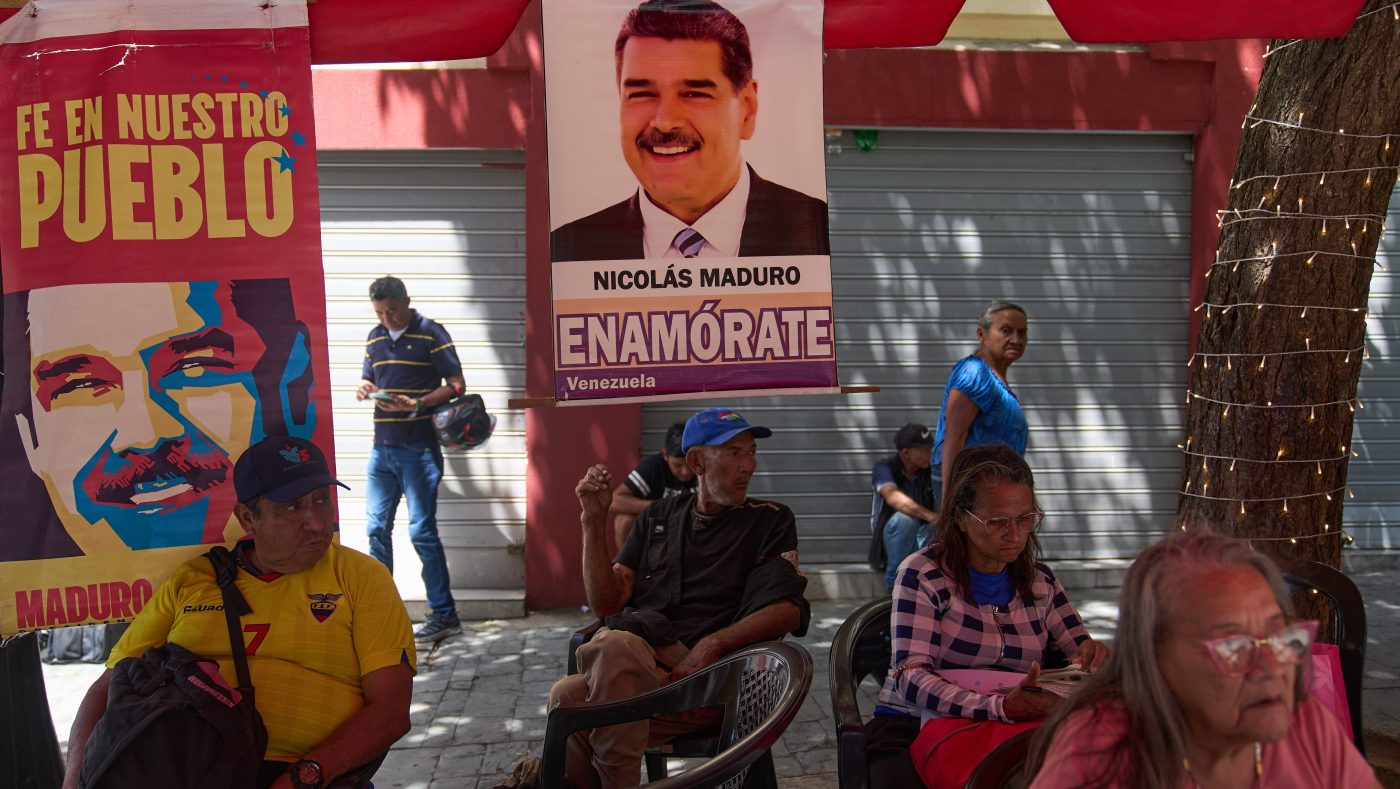This week’s edition covers stories
from October 23rd to October 29th, 2025.
Today’s issue is 1000 words, a 7-minute read
Hey folks, Isabella here.
My therapist said to manage stress, but the news is a mess. Layoffs are hitting different because corporate giants are swapping actual humans for pricy AI chips. Plus, we’ve got a $20 billion geopolitical flex in Argentina, and the US Navy is fully telegraphing kinetic action in Venezuela. I’m choosing a spooky season distraction.
Corporate Layoffs Amid the AI Race
In a recent wave of corporate restructuring, major companies like Amazon, Target, and Paramount have announced significant job cuts, often citing the need for increased efficiency and a sharper focus on future growth areas like Artificial Intelligence (AI).
Amazon leads the cuts, planning to eliminate about 14,000 corporate jobs —approximately 4% of its corporate workforce— while simultaneously making big investments in the AI race, where it lags behind competitors like Microsoft. CEO Andy Jassy noted that extensive AI use will eventually reduce the company’s total corporate workforce by creating efficiency gains.

Meanwhile, Target is cutting approximately 800 corporate positions across Minneapolis and Brooklyn Park in its largest shake-up since 2015. New leadership is focused on streamlining operations, reducing management layers to improve nimbleness, and addressing declining sales and traffic.
Similarly, media giant Paramount is starting layoffs that are expected to impact about 1,000 roles this week. CEO David Ellison attributed the cuts to addressing redundancies and phasing out roles no longer aligned with “evolving priorities” as the company repositions for long-term growth and invests in key areas.
The widespread narrative framing these cuts as a direct result of AI automation replacing individual jobs may be overly simplistic and overlook a crucial financial pressure point: the massive capital expenditure required by the AI race itself. While executives cite efficiency, the deeper reality could be a harsh fiscal trade-off. Companies like Amazon, with notoriously thin margins across both their retail and cloud (AWS) divisions, face an unprecedented demand for high-end GPU chips—the essential, and costly, hardware powering their AI ambitions. This relentless spending on computing power forces a severe corporate and finance restructuring.
Therefore, the corporate layoffs might not primarily be a consequence of AI taking over jobs, but rather of the company needing to conserve cash and reduce fixed operational costs, including valuable talent, to fund the exponentially increasing price of entry into the AI arms race and maintain overall profitability. This perspective suggests that the current layoffs are less about immediate technological displacement and more about a strategic, painful exchange: trading human capital for the advanced processing power (GPUs) necessary to secure a competitive future in AI.
$20 Billion Lifeline: Milei’s Victory
Validates Trump’s Political Gambit
The U.S. $20 billion financial lifeline to Argentina, authorized by the Trump administration to stabilize the peso via a currency swap, has been secured following the decisive victory of Argentine President Javier Milei’s party, La Libertad Avanza, in the October 26, 2025, midterm legislative elections.

The U.S. Rationale: Political & Geopolitical
The aid, which bypassed the traditional IMF route, was explicitly made contingent on a Milei triumph by President Trump, who stated, “If he wins, we’re staying with him, and if he doesn’t win, we’re gone.” This conditionality drew significant criticism from those who saw no clear economic rationale for intervening in a country that is not a systemic global risk. Experts widely viewed the move as purely political and geopolitical: an effort to support a key ideological ally in Milei and to counter China’s growing influence in Latin America, particularly given Argentina’s reserves of critical minerals like lithium. While Treasury Secretary Scott Bessent framed the aid as “policy-specific”, supporting Milei’s market-friendly austerity, the U.S. is facing a significant risk given Argentina’s history of loan defaults.
The Argentine Mandate: Fear of Past Chaos
Milei’s win, which saw his party jump from 37 to 64 seats in the Chamber of Deputies, was a major political triumph and a relief to the Trump administration. Trump quickly congratulated Milei, asserting, “Our confidence in him was justified by the People of Argentina.” For Argentina, the election results, which were stronger than expected, reflected voters’ apparent fear of renewed economic chaos if the country abandoned Milei’s deep austerity policies. The mandate now strengthens Milei’s ability to accelerate his reforms, which have already achieved a fiscal surplus and drastically reduced monthly inflation, by securing the one-third of seats needed to prevent presidential vetoes from being overturned by the opposition.
U.S. Telegraphs Kinetic
Action in Venezuela
The massive U.S. military presence in the Caribbean, including the deployment of the aircraft carrier USS Gerald R. Ford and multiple destroyers, suggests the Trump administration is actively “telegraphing” the possibility of kinetic action against Venezuelan President Nicolás Maduro.

📸 The Hill
While the administration officially frames the activity as a counter-narcotics operation—destroying alleged drug-smuggling boats and promising to stop land-based trafficking—experts and even Maduro’s allies believe the primary goal is regime change. The U.S. has flown B-52 and B-1 bombers near Venezuelan airspace and authorized covert CIA operations to “scare the pants off” Maduro and create internal fissures.
Military analysts confirm the deployed forces possess significant power projection capabilities, including options for air or soft-type raids targeting drug cartel infrastructure like port facilities. If the U.S. moves beyond sea strikes to land targets inside Venezuela, experts agree this will reveal the “true” intention: an attempt to force Maduro out. Despite the pressure, the Maduro regime remains intact, leaving the U.S. at a crossroads: escalate with internal strikes or declare victory and move on. Maduro’s attorney general maintains Caracas is “prepared” for an invasion.
Amid these external threats, the domestic sentiment is complex: while expressing fear of a military conflict, some Venezuelans openly hope for a leadership change. One young woman stated, “Venezuela would change and we would all be free” if the Maduro regime were to fall. This internal desire for freedom and change exists alongside a refusal to accept the U.S.’s primary justification for its military actions.
Stay informed, stay connected.
See you next week!
–
Isabella and the NewPrensa team
Advertisements


Hi, friend: Isabella here!
I’m a Communications Specialist by day and trick-or-treating by night!
Do you enjoy reading NewPrensa?
Forward it to someone you think may enjoy it too!
Got suggestions, feedback, or a good scoop?
Send it to us at newprensa@newpublica.com or message us on instagram @newprensa
If someone sent this newsletter your way, feel free to subscribe to get local, BIPOC news delivered to your inbox every Thursday morning.


